
33 minute read
news | the front line
SYDNEY ‘REGION 8’ BUS TENDER OPEN
THE TENDER for Sydney’s Northern Beaches and the Lower North Shore bus contract – Region 8 – is now officially open, Transport for NSW (TfNSW) has announced.
The “competitive tender process” for operating Region 8 bus services is an opportunity for leading transport operators from both Australia and overseas to demonstrate how they will deliver improved services to customers on behalf of the NSW government, TfNSW explains.
“We’re looking for an operator to deliver new and innovative services for our customers on the North Shore and Northern Beaches. This will mean more frequent and convenient services throughout the day, including turn-up-and-go and on-demand routes,” said Elizabeth Mildwater, deputy secretary – Greater Sydney, at TfNSW.
“We’re also looking for operators to show us how they can help the government transition to zero-emission buses, and improve real-time information that will help customers to better plan their journeys and connect with other transport modes,” Mildwater added.
The start of the competitive tender process in Region 8 follows several months of market sounding late 2019 and earlier this year. It will close on September 30, 2020, with the transition to the new operator expected during the final quarter of 2021, TfNSW explains.
ASSETS KEPT
As part of the franchising process, the NSW government will maintain control of routes, fares, assets such as buses and the existing depots at North Sydney, Brookvale and Mona Vale, it says.
“All operational staff, including bus drivers and maintenance staff, will have the opportunity to transfer to the new operator with a two-year job guarantee on the same award terms and conditions,” said Mildwater.
“Every effort will be made to
Above:
As part of the franchising process, the NSW government will maintain control of routes, fares, assets such as buses and the existing depots at North Sydney, Brookvale and Mona Vale, it says. find roles for non-operational award employees before services change hands to the new operator, either with the new operator or within the public sector,” she added.
Prospective tenderers can register to participate by visiting the NSW government’s eTenders website.
The competitive tender process for the two other regions currently operated by State Transit – Region 7 in Sydney’s north and Region 9 in Sydney’s east – are currently planned to open in August and November 2020, respectively.

AUSSIE UNI SIGNS MOU TO ADVANCE ZERO-EMISSIONS BUS TECH

THE UNIVERSITY of New South Wales – one of Australia’s leading research and teaching universities – has signed a Memorandum of Understanding (MoU) with Dutch e-bus manufacturer Ebusco, to “accelerate development of zero emissions transport”, the entities have announced.
The Sydney-based UNSW’s agreement with the Dutch electric bus manufacturer will bolster research and development of electric vehicles and sustainable transport in Australia, they state.
UNSW President and ViceChancellor, Professor Ian Jacobs, says the partnership reflects UNSW’s commitment to a more sustainable future.
“This new collaboration with Ebusco will help make significant advances in areas such as renewable energy and manufacturing – both areas of research strength at UNSW,” Professor Jacobs said.
“We are committed to taking action on climate change and to working with industry as such partnerships are key to making a positive global impact,” he explained.
Under the terms of the agreement, UNSW students and research experts will have the opportunity to work with Ebusco engineers on diverse subject areas, such as transport planning, energy storage and advanced and precision manufacturing, it’s reported.
Students will have access to scholarship programmes, industry placements and internships at Ebusco’s operations in the Netherlands, China and Australia, says Ebusco. Students and staff will also have opportunities to work directly with the company’s engineers on the next generation of Ebusco’s electric bus fleets.
The MoU further strengthens Ebusco’s commitment to Australian bus manufacturing, with the company only recently announcing its alliance with Australian Bus Corp – aka Bustech, Precision Buses and Elphinstone – earlier this month.
Professor Ian Gibson, Associate Dean (Industry and Innovation) at UNSW Engineering, says the MoU presents an unsurpassed opportunity to advance UNSW research across multiple engineering disciplines.
“This partnership draws on complementary expertise and we hope it will lead to new and more efficient ways of manufacturing electric vehicles in Australia. I am looking forward to seeing the translation of UNSW’s research into commercial outcomes,” Prof. Gibson said. A NATURAL FIT

Director of Ebusco’s Australian business Simon Pearce believes the relationship with UNSW is a natural fit.
“We were blown away by the breadth and depth of knowledge at UNSW. I have no doubt this partnership will help Ebusco continue to pioneer world-leading technology and sustainable transport solutions.”
UNSW and Ebusco say they hope to work with Transport for NSW to improve health and the environment in our cities.
The NSW government announced late last year that it would replace Sydney’s ageing diesel bus fleet with electric vehicles. It is currently calling for expressions of interest for running trials of environmentally friendly zero emission buses.
Below:
Under the terms of the agreement, UNSW students and research experts will have the opportunity to work with Ebusco engineers on diverse subject areas, the company confirms.
RMS BUS FINES REMINDER ACCOMPANIES NORTHCONNEX LAUNCH
PENALTIES will apply to some bus and truck operators for avoiding Sydney’s new NorthConnex toll road, with gantry-camera vehicle-size monitoring in use, warns NSW Roads and Maritime Services (RMS).
As first reported in ABC magazine’s sister title ATN, amidst the pomp and ceremony of NorthConnex’s first end-to-end drivethrough lurks a Roads and Maritime Services (RMS) memo to commercial vehicle operators in May 2020, on the consequences of avoiding the new toll road.
The launch of the $3 billion state-federal initiative saw a photo opportunity for Prime Minister Scott Morrison, Federal Infrastructure Minister Michael McCormack, New South Wales Premier Gladys Berejiklian and NSW Transport and Roads Minister Andrew Constance at the 9km twin tunnels, which travel between the M1 Pacific Motorway at Wahroonga and the M2 Hills Motorway at West Pennant Hills.
The tunnel is said to be open to the public “within two months”.
In a statement, all ministers praised the flagship project, with Berejiklian noting once complete NorthConnex would save up to 15 minutes’ travel time and allow drivers to avoid 21 sets of traffic lights along Pennant Hills Road. “Today’s drive-through is another indication of how close we are getting to opening this key piece of infrastructure and helping to alleviate the traffic problems Pennant Hills Road has been experiencing for decades,” she said. “NorthConnex will return local streets to local communities by taking up to 5,000 trucks per day off Pennant Hills Road, easing congestion, improving safety and local air quality, and reducing traffic noise.”
McCormack adds: “This project is one of many which is moving people safely and more efficiently across Sydney, while creating job opportunities for local workers.”
Given the project is being delivered in partnership with toll road operator Transurban, tolls will apply, with April 2020 pricing set at
Above:
The ministerial (L-R: McCormack, Morrison, Berejiklian, Constance) march through the new tunnel.

NATIONAL BUS RESCUE PACKAGE SOUGHT TO SAVE COACH TOURISM
A LOOMING ELECTION at the time with expert opinion it will take another 12 to 18 months before the Australian bus industry is able to “transition out of this crisis”, the federal government is being asked to “step up and do more” to “protect our industry and the people we support”, says the Bus Industry Confederation (BIC).
Australia’s peak bus body – representing an industry responsible for transporting alone more than 500,000 coach passengers every day – made the call for a national rescue package in its advisory role to the Tourism Restart Taskforce, which was established by the Australian Chamber of Commerce and Industry in April 2020.
Speaking on behalf of the BIC following the recent release of the Tourism Restart Taskforce’s plan to rebuild Australia’s tourism sector, executive director Michael Apps said: “We fully endorse the recommendations by the Tourism Restart Taskforce to bring tourism back to life through targeted policy reforms and greater investments in infrastructure and training.”
However, he also pointed out: “We need government to step up and do more to protect our industry and the people we support.
“We require a national rescue package to support us though the downturn and on the road out,” he added.
In fact, however, such a package has already been proffered for government consideration.
As Apps explained: “…we have developed a rescue package that includes immediate financial assistance to provide a full diesel rebate, like the mining sector receives; the extension of JobKeeper for our industry beyond September; and consideration of a travel rebate of fares to encourage the Australian public to travel across the nation – not over it.
Below:
“We need Government to step up and do more to protect our industry and the people we support,” says BIC executive director Michael Apps.
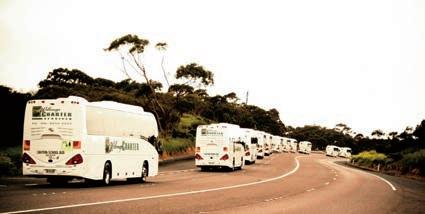

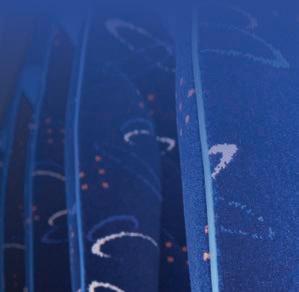
$7.83 for cars and $23.50 for heavy vehicles.
More pertinent to industry, however, is RMS’ recently released guide to using NorthConnex for trucks and buses, reminding operators that: “...we will only be able to deliver the benefits of NorthConnex by removing some of the truck and bus traffic from Pennant Hills Road”.
It says operators will need to know their vehicle dimensions and plan trips accordingly.
“Trucks and buses (over 12.5 metres long or over 2.8 metres clearance height) travelling between the M1 and M2 must use the tunnels unless they have a genuine delivery or pick up destination only accessible via Pennant Hills Road,” the document states.
“Two gantries will monitor trucks and buses on Pennant Hills Road – in the north at Normanhurst and in the south at Beecroft/ West Pennant Hills.
“Cameras in the gantries will record the height and length of trucks and buses.
“Trucks and buses (over 12.5 metres long or over 2.8 metres clearance height) which pass both gantries with the flow of traffic will receive a fine of $191 with no loss of demerit points.”
Exceptions apply to vehicles transporting dangerous goods with a dangerous goods placard or sign, and oversize vehicles operating under a Class 1 permit or notice approved to use Pennant Hills Road.
RMS pledges to share further information on NorthConnex to ensure industry can plan for the new regulation.
“This will support our local tourism industry and, in particular, local regional tourism.”
LONG ROAD AHEAD
With Australian tourism at a standstill, tens of thousands of jobs in the bus and coach sector are at severe risk with operators being forced to park a national tour and charter fleet of more than 8,000 large coaches and thousands of mini buses, covering non-public transport services for more than 500,000 coach tour passengers every day, according to the BIC.
“The reality is that no passengers mean no tours, no charters and no travel,” said Apps.
“Since Covid-19 started and travel restrictions and border closures were announced, we’ve seen most coach operators have no choice but to be either deregister[ed], or permanently parked and most staff laid off, or on JobKeeper.”
On the right road for bus and coach fabrics.
From design and manufacture, to technical and fl ammability performance, Camira has it covered:
■ Design and durability – nearly 200 years’ manufacturing experience ■ Safety – meeting strict bus, coach, rail and maritime specifi cations ■ Anti-stain technology – ‘Defender’ treatment ■ More than seating fabric – leather, curtains, fl at-woven and vinyl T: 03 9832 0624 E: info@camiragroup.com.au
www.camirafabrics.com






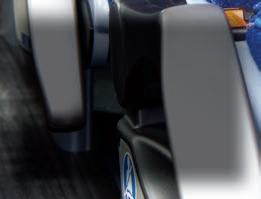

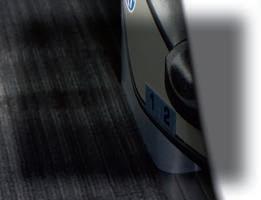

BUS INDUSTRY ASSESSES ‘CASUAL DRIVERS’ AFTER KEY IR CASE
A LONG-AWAITED decision on an industrial relations-shaping ‘work status’ case has cast casual drivers into the Australian bus industry’s spotlight during an expert-led round-table discussion, recently.
If the decision stands, operators will be required to make dramatic changes to their work forces and perhaps further changes made to the Awards and Enterprise Agreements.
The conjecture comes following a Bus Industry Confederation (BIC)-led Industrial Working Group’s online seminar held on June 12, 2020, where Professor Andrew Stewart – Professor at Law, Adelaide University – gave his views on what the decision means for the bus industry.
THE CASE
On Wednesday, May 20, 2020, the eagerly anticipated decision in the Workpac Pty Ltd v. Rossato was handed down. The case related to Mr Rossato, a casual worker employed by labour-hire company WorkPac as a drive-in/drive-out production employee engaged to work on various mines within the Glencore Group. Some of the employment contracts required Rossato to work in accordance with a roster, which allocated shifts up to seven months in advance.
Most of Rossato’s contracts contemplated the payment of a casual loading without specifically referring to the casual loading, and Rossato was paid at a higher rate than those stipulated in the Enterprise Agreement.
Rossato’s case has upheld the previous decision in the Workpac Pty Ltd v. Skene case, in which an employee with a ‘firm advance commitment’ of employment was deemed not to be a casual employee, but a ‘permanent part-time employee’ with all the entitlements provided under the National Employment Standards, such as annual and sick leave, BIC explains. THE DISCUSSION
More than 50 BIC and Australian Public Transport Industrial Association (APTIA) members heard from Professor Stewart, who advised that they should try to persuade long-term casuals to convert to permanent employment, or at least consider amending employment contracts to clearly stipulate casual loadings and their purpose, and to allow for set off or restitution if deemed otherwise.
LEGAL ADVICE
Executive director of the BIC Michael Apps, said: “The Bus Industry Confederation has advocated to its members a ‘wait and see’ approach to the decision and has sought legal advice on its implications for our employers.”
“It is evident, however, that the implication for our industry from the decision is that employment for casual school bus drivers, who work regularly for 40 weeks a year, will have to be re-assessed by their employers and casual coach and charter drivers also may no longer be able to be employed as casuals,” he added.
The BIC believes that it is probably safe to assume that if an employee has a ‘firm advance commitment’ of work, within the meaning of Skene and Rossato, then these employees are not casual employees.
National IR manager of the BIC, Ian MacDonald, said: “It is likely, however, that there will be relief by way of set off, as it is clear that the decision creates inequities… (such as) a casual school bus driver, working regularly for 20 hours a week, 40 weeks a year and no longer deemed a casual employee (under the principles set out in Rossato’s case) could be paid 25 per cent more for working 20 hours a week than a part-time employee who is not entitled to a loading but working the same 20 hours. Each driver would be then entitled to pro-rata leave entitlements.”

Above:
Professor Stewart advises bus operators should try to persuade long-term casual employees (drivers) to convert to permanent employment, or at least consider amending employment contracts to clearly stipulate casual loadings and their purpose. THINGS TO CONSIDER NOW
In the meantime, MacDonald suggests that employers consider the following actions: 1. Is it possible to convert casual employees to part-time or full-time employment (noting a school bus driver working 20 hours a week, 40 weeks of the year, may not fit into this category)? 2. Write to each casual employee and advise them that they are employed as casual employees and that they receive an additional hourly payment that covers them for the paid leave entitlements, which part-time or permanent employees receive and that the additional payment is set off against any paid NES entitlement. 3. Where possible, pay slips should record the additional payment along with the base rate of pay, so the additional payment (loading) is clearly designated. 4. Seek to add to Enterprise Agreement negotiations a clause that aims to protect an employer from ‘double dipping’ by an employee deemed not to be a casual whilst they are receiving the casual loading.
BUS INDUSTRY SEEKS GOVT JOBKEEPER EXTENSION
AN EXTENSION of “at least six months” to the Federal Government’s JobKeeper scheme is being sought for the Long Distance, Tourist and Charter (LDTC) sector by the Bus Australia Network (BAN) – a collective industry entity – it’s been revealed.
In correspondence dated June 30, 2020, and issued to the Hon. Michael McCormack MP, Deputy Prime Minister and Minister for Infrastructure, Transport and Regional Development, the network is seeking for JobKeeper to be extended, “…for at least six months beyond September 27, 2020 in order to get through the December 2020 – February 2021 school holiday period, where there are minimal school extracurricular activities to generate business for this sector of the industry.
“An extension of JobKeeper will enable these operators, who are mainly small and medium-sized businesses, to endure the Covid-19 crisis longer and have an opportunity to recommence commercial operations during the second quarter of 2021.”
BAN is an umbrella title for the following bus organisations: the Bus Industry Confederation (BIC), BusNSW, BusSA, BusVic, QBIC, TasBus and BusWA.

ECONOMIC IMPACT
As the document highlights, coronavirus has caused a massive disruption to this “non-contracted” sector of the industry, with state government restrictions on movement and gatherings, and border closures, contributing to a substantial downturn.
“These operators are not protected by funding linked to state government contracts and generally have a substantial investment in assets including buses and depots,” it states.
“The cancellation of airline services, cruise ships, major events and transport for school, pensioner and social groups has left these operators and their employees in a precarious situation.
“As a result, most operators have put their businesses into hibernation and are acutely concerned about their ability to recommence operations and remain viable – thousands of drivers have been stood down and hundreds of vehicles have been deregistered,” it adds.
Above:
Additionally, BAN asks that any federal government stimulus for the tourism industry include direct financial assistance to bus and coach operators, who are dependent on international and domestic tourists.

VEHICLES (4/21)
Region - All Search
003 - Express
09:52, Sydney, New South Wales, 2000, AUS
004 – Service

09:53, Melbourne, Victoria, 3000, AUS
005 – Express
28/07, 10:16, Brisbane, Queensland, 4000, AUS
MONITOR FUEL USAGE AND CARBON EMISSION.
Get real-time and historical insight into your fleet’s fuel consumption and emissions.

VIRUS SPIKE PUTS BUS ANTI-COVID MEASURES IN FOCUS
RECENT CORONAVIRUS case number increases in Victoria has put new emphasis on hygiene protection strategies on buses and coaches becoming standard – not just optional – sooner rather than later, according to a leading European bus-body manufacturer spokesperson.
“We are seeing certain anti-coronavirus measures being ISO certified in Europe due to demand, where the impact of the disease has reportedly been much greater than here in Australia, in terms of cases and deaths,” said Daniel Castro, director at Irizar Asia Pacific Pty Ltd based in Melbourne.
“Unfortunately, what we are seeing here in certain parts of Melbourne, Victoria, right now could be an indication that such a virus or maybe even future viruses could repeat and would need to be best managed and mitigated quickly, so maybe anti-viral strategies and improved hygiene and non-contact screening measures on buses should be made mandatory, so we are being proactive and prepared instead of being ‘reactive’ and caught off guard,” he explained.
“In this way people can travel more at ease on buses and it might even help improve (or lessen) social distancing, so as to increase passenger capacity safely on buses,” Castro added.
While such sentiments come at a time Irizar is trialling its new European-sourced suite of anti-virus bus-travel solutions, it is quick to point out the issue is greater than one brand and that other bus marques also have emerging technologies and strategies to help combat the spread of the disease.
“It might be a case where government contracts for bus services are only awarded in future when the buses being used have a checklist of anti-Covid measures fitted from the factory, or need them retrofitted by the aftermarket, if and when such things exist,” he suggested.
PT REACTIVATION
In a move to further promote safe and sustainable collective mobility, the Irizar Group in Europe highlighted a range of hygiene solutions recently, which Castro has brought to the Asia-Pacific market for extended trials and further demonstration.
To combat the virus on public transport, the company also displayed its range of strategies to help tackle the Covid-19 problem on buses and coaches with a video showcasing them in action.
Aside from the expected screens and passenger dividers (in principle similar to what many consumers in Australia and New Zealand have seen used in supermarkets and sundry stores), these include: a smart camera for access control; automatic vehicle disinfection without passengers on board; and Eco3 air purification.
Pictured:
In this way people can travel more at ease on buses and it might even help improve (or lessen) social distancing, so as to increase passenger capacity safely on buses,” Castro added. SMART CAMERAS
The access control camera is a smart system located at the vehicle’s entrance. Its goal is to keep passengers who show symptoms, or who do not follow the Covid-19 protocols, from boarding the vehicle, Irizar explains.
It is equipped with a body temperature sensor that measures the temperature of the passengers and signals when it is above 37˚C. It also has artificial vision cameras that can be used to detect whether passengers are wearing masks and the complete process is done automatically and in real time, it adds.
“When a passenger has a fever or is not wearing a mask the system will make a signal alerting them that they may not board the vehicle and the driver can act proactively without needing supervision to follow the established health protocol,” Castro outlined.
“These cameras do not record the personal data of passengers in order to comply with privacy requirements,” he is quick to explain.
The device provides the possibility of being integrated with the fleet manager product provided by Irizar, for the purpose of monitoring and managing the recorded Covid-19 incidents quickly and easily, Castro states.

FAMILY BUS OPERATOR CHANGES LOGO TO HONOUR ESSENTIAL WORKERS
IN THANKING all those who “…keep our country moving forward safely,” a family-run Queensland bus operator has updated its corporate branding to honour all essential workers – “including all bus drivers”, Koala Koaches has announced.
The company has recently updated its livery by re-introducing a graphic of a koala, and a gum leaf, to its signage – even more so emotively poignant and respectful given the destructive bushfires across Australia earlier this year – and changed to using teal and charcoal colours.
Yet perhaps most impressively, the company has honoured its namesake iconic animal and those at the forefront of the current Covid-19 coronavirus pandemic situation by including stickers of a large koala head wearing a face mask, underwritten by the words: “THANK YOU all Essential Workers!”
According to the company, this was its way of thanking all essential workers for their efforts during Covid-19, including “all bus drivers” and those that work in the transport industry, who “keep our country moving forward safely.”
UNPRECEDENTED TIMES
Like many long-standing family owned bus and coach operators and businesses across Australasia, the 58-year-old Koala Koaches says it’s never seen anything like Covid-19 and will do its bit to, “…continue to work through these difficult times together, to slowly get all businesses back to normality.”
ABOUT KOALA KOACHES
Koala Koaches specialises in coach, bus and minibus hire in and around the Gold Coast, Queensland.
It operates a fleet of various sized buses and coaches, with seating for seven to 67 passengers.
Koala Koaches commuters, minis and midis are also available for self-drive hire, to people over 25 years of age and holding the appropriate driver’s License, it states.
Since 1963, Koala Koaches has been a local, family owned and operated bus and coach company, based in Burleigh Heads.

Above:
According to The Gold Coast’s Koala Koaches, this was its way of thanking all essential workers for their efforts during Covid-19, including “all bus drivers”.


The Bendix Ultimate 4WD Brake Upgrade Kit with advanced brake pads and rotors, braided lines and a host of ancillary items is the ultimate brake upgrade for the latest 4WD vehicles such as Ranger and Hilux.

This comprehensive kit includes specially compounded high performance CERAMIC material brake pads for increased stopping power in extreme conditions plus the latest Bendix Ultimate Rotors designed and developed specifically for Australia’s demanding conditions.
Find solutions for every brake job at www.bendix.com.au
Or freecall the Bendix Brake Advice Centre on 1800 819 666
Bendix is a trademark of Garrett Advancing Motion Inc.
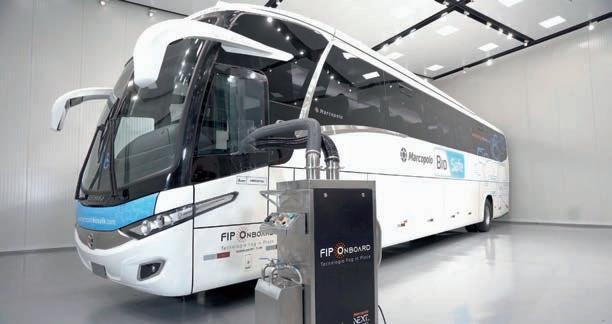
VOLGREN ANTI-VIRUS ‘FOG’ TECH TO IMPROVE BUS BIOSAFETY
WITH FAR WIDER applications than just buses, Volgren is to bring a suite of anti-virus solutions for Covid-19 into Australia to improve biosafety for passengers, the company has announced.
Volgren’s parent company, Marcopolo, has recently launched a range of global biosafety measures designed to limit the spread of Covid-19 coronavirus and improve the safety of bus passengers, drivers and the general public, it states.
Known as ‘Marcopolo BioSafe’, the suite of products includes: Fog In Place (FIP) OnBoard – a dry fog that disinfects the inside of buses, trains or trams without using chemicals that are toxic to humans; protection kits for drivers; and UVC light technology to disinfect restrooms.
Australian bus body manufacturer Volgren is investigating how the products could be used in an Australian context.
CEO of Marcopolo James Bellini says the new concept promotes passenger biosafety while respecting the guidelines of health and government agencies.
“We live in a unique time where innovation and technology are coupled to safely resume mobility. With Marcopolo BioSafe, our objective is to put ourselves as partners of our customers both in Brazil and abroad, giving them the conditions to continue operating and regain their confidence in using public transportation,” he explained.
Bellini says he’s eager to show the technology in action to as many operators as possible, as quickly as possible.
“We need to act with urgency and proactivity to spread and foster the application of these important solutions.
“Public transportation is fundamental to ensure people’s mobility and cannot be seen as a bottleneck or a limitation.”
NOT JUST BUSES!
Volgren CEO Thiago Deiro says that embedding biosafety measures into public transport is an important step towards restoring passenger confidence and will preserve the safety of the travelling public.
“Covid-19 has created challenges for many sectors. Public transport and student transport have been especially impacted,” he said.
“We believe that the measures developed under Marcopolo BioSafe could play an important role in helping Australia’s bus industry recover economically by making commuters and school children comfortable returning to bus travel.”
Deiro says the FIP OnBoard dry fog is a fast and reliable system that sanitises through nanoparticles, creating a ‘nanofilm’ on 100 per cent of surfaces. It only takes 15 minutes on average to cover and sanitise an entire passenger area for up to 72 hours. The application doesn’t wet or dampen seats, or harm the buses electrical systems, he adds.
“Marcopolo’s ‘fog in place’ system is also fascinating because it can be used not only in buses, but in many broad applications ranging from school classrooms, cafes and restaurants to public libraries,” Deiro explained.
“Being a father of two, I’d pretty much like to see school buses and even classrooms disinfected on a routine basis.”
“It’s a credit to Marcopolo that they’ve come up with such an innovative solution in such a relatively short period of time,” he added.
Deiro says Volgren has been working with Marcopolo to roll out the BioSafe measures in its coach and route vehicles and is in discussions with customers and government operators to gauge interest.
Below:
Australian bus body manufacturer Volgren is investigating how parent company Marcopolo’s BioSafe products could be used in an Australian context, it says.


UK BUS AND COACH operator National Express has started to fulfil its pledge to no longer buy diesel buses, with the first of 29 ADL-BYD Enviro400EV electric double-deckers starting service recently, the company has announced.
Following an official late February statement outlining “…its vision to become the UK’s most sustainable bus and coach company,” the National Express Group stated it will: “…not buy another diesel bus for our UK operations”; “Will lead the transition to zero emission coaches, with a target for the first electric coaches to be in service next year”; that its ambition was “…our UK bus and UK coach fleets will be fully zero emission from 2030 and 2035, respectively”; and that “…environmental targets will make up 25 per cent of senior executive long-term incentive plans.”
On July 5 the National Express West Midlands’ first fully electric ADL-BYD double-decker left its Yardley Wood garage.
As National Express explains, bus drivers have to be specially trained to drive electric buses. The vehicles behave completely differently to combustion engine-driven buses, and drivers have to drive to preserve the charge for as long as possible and extend the range, it says. Engineers too have been trained in a whole new kind of maintenance, it adds.
Additionally, the National Express says its 80-year-old Yardley Wood garage was also retrofitted with: a stationary “shed-sized battery” ( provided by Zenobe Energy, which balances the load on the grid, ADL says); a charging station [plug in] for each bus; and a system so engineers can monitor the buses’ performance from screens in the depot or their laptops.
The buses charge up in four hours and can run for 190 kilometres before needing another charge, National Express states.



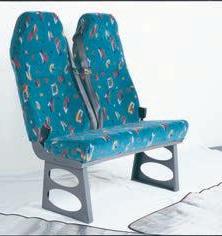




RESTORED BRISBANE HERITAGE BUS MAKES PUBLIC DEBUT

ONE OF BRISBANE City Council’s first purpose-built buses – a 72-year-old diesel-powered British AEC Regal III – made a sentimental spin around the city on July 10, after a “breathtaking restoration”, organisers announced.
The restoration was funded by a $19,000 Queensland Government Gambling Community Benefit Fund grant.
Bus 80 – a British AEC Regal III chassis with a Commonwealth Engineering body built in Sydney – was one of 12 diesel-powered buses brought into service in 1948, QOCS explains.
“Between October 1947 and April 1948, the Brisbane City Council began consolidating the bus system in Brisbane by compulsorily acquiring 20 private operators,” QOCS president Nick Wilson said.
The gleaming silver Bus 80 cost £5,110, the equivalent to approximately $319,800 in today’s money, it states.
The bus began operating from the BCC’s Light Street depot in Fortitude Valley in June 1948, and remained in service until September 1971.
Queensland State Minister for Transport and Main Roads Mark Bailey MP unveiled the restoration alongside BCC Chair of the Public and Active Transport Committee Cr Murphy.
Wilson says QOCS was grateful the Queensland Government funding allowed Bus 80 to have another lease of life.
“There would be many who still remember Bus 80 and others like it servicing suburbs such as Doomben, Indooroopilly, Moorooka, Norman Park, Tarragindi and Yeerongpilly,” Wilson said.
“It’s an important part of Brisbane’s transport history – and while the city looks very different, it will be great to give Bus 80 a run on some of the streets it would have traversed day after day for more than 20 years.”
Acacia Ridge-based firm Coachworks conducted the restoration, which began in May. Coachworks general manager Scott Isaacs says it was an enjoyable project to work on as the coronavirus lockdown created uncertainty in the transport industry.
“The Covid-19 slowdown has meant that the timing of these projects is mutually beneficial,” he said.
“Our team always enjoy working on club buses and it’s a great talking point for our customers and suppliers when they visit our workshop.”
A not-for-profit organisation dedicated to preserving Brisbane’s bus history, QOCS hopes to one day feature Bus 80 and its fleet of 16 other vintage buses at a proposed Brisbane Transport Museum at Council’s Hangar 7 facility at Eagle Farm, it explains.
However, until this time, Bus 80 will instead be displayed at the Queensland Transport Museum in Gatton, it confirms.
“It’s the first time a QOCS bus will be able to be seen by the general public all year round,” Wilson said.
Below: The bus began operating from the BCC’s Light Street depot in Fortitude Valley in June 1948, and remained in service until September 1971, QOCS states.
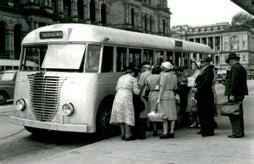
THE WOT!?!

STOP STOPPING
A parking ticket was slapped on a bus parked for a layover in a bus stop in the UK recently, while the driver nipped down the road for a drink and a sandwich. Described by the bus company as “a slap in the face” for drivers who continued to work throughout lockdown, Leicestershire County Council said the notice “was issued as the bus appeared to be parked up and unattended”. Apparently the appeal against the £70 ($126) fine will be “carefully considered”.

GOOSE WHISPERER
A Coast Mountain Bus Company driver is being commended for escorting a gaggle of geese across a busy Vancouver intersection recently. Kelly Podlubny was recorded chivvying the geese to safety after he noticed that traffic had stopped. “I knew it was dangerous for the geese,” he said, “so I took it upon myself to go outside and try and wrangle them across the street. They’re calling me the ‘Goose Whisperer’ on Facebook, which makes me smile. Hope it makes others smile, too.”

MANY MASKS
Stuff the Bus Foundation, a charity in southern Kentucky that donates school supplies, has announced that its partner, Wendy’s of Bowling Green, is supplying 15,000 surgical face masks for schools in the state, which will be disseminated through the foundation. “I really think this might be the most timely donation we’ve ever had,” said Tony Rose, the radio host who started Stuff the Bus 15 years ago as a promotional stunt.
NEW ZEALAND E-BUS DEAL PUTS ‘LEASING’ IN THE SPOTLIGHT
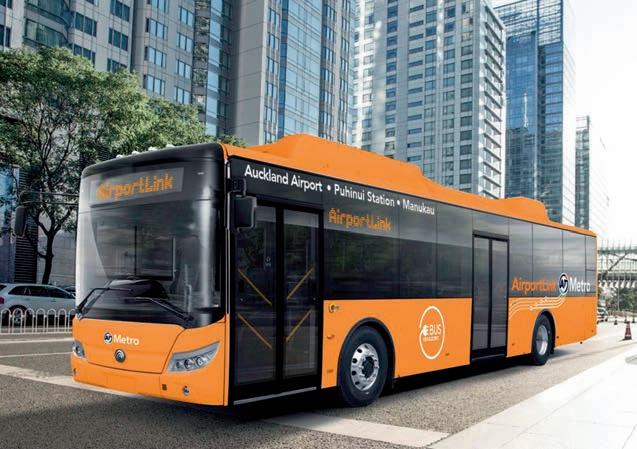
AUSTRALIAN electric bus charging specialist Electromotiv has secured its largest e-bus leasing deal to date, following Kiwi operator Go Bus signing on for nine Yutong E12 buses, the companies announced recently.
The agreement between zero-emission charging and refuelling provider Electromotiv and Go Bus is a multi-million dollar contract, and includes Yutong E12s serviced and maintained by Electromotiv partner, JW Group.
Managing director and co-founder of Electromotiv Toby Roxburgh says the three-way partnership demonstrated that, as operators look at ways of transitioning to zero-emission fleets, leasing was becoming a convincing commercial option.
“The big advantages of leasing are that it removes upfront costs, reduces risk and enables operators to pick and choose the best technology,” Roxburgh said.
“Governments and operators are reviewing their procurement solutions as they transition to zero-emission buses, and those advantages are becoming clear and compelling.
“Until now, operators have been struggling to procure high-quality zero-emission vehicles. In part that’s because banks have been reluctant to lend for under seven-year terms.
“One reason we started our vehicle support division was to remove this lending barrier,” he explained.
ENTIRELY DOABLE
Roxburgh says his team had dedicated significant time and resources on the economics of vehicle leasing. The aim has always been to provide operators with electric and hydrogen vehicles that were more than simply “price competitive”.
“We’ve worked very hard to create rates that work out cheaper than the diesel alternative. Only by doing that can we enable projects like this to go ahead,” Roxburgh explained.
“What this deal with Go Bus and JW Group shows is that transitioning to ‘ZEBs’ (zero-emission buses) is now entirely doable. You no longer need to wait to make the transition.”
Below:
Managing director and co-founder of Electromotiv Toby Roxburgh.

EXCITING TIMES
Go Bus CEO Calum Haslop says he was excited to be leading Auckland’s move into zero-emission buses.
“Having trialled two full battery electric buses over a 12-month period and completed thorough due diligence on a number of electric and hydrogen bus deployments worldwide, we are now ready to move to a zero-emission future,” Haslop said.
“We are also rolling out electric buses in other cities in New Zealand and continue to work on hydrogen solutions as a complementary zero-emission option.”
Roxburgh says New Zealand is well ahead of many much larger countries, including Australia, when it comes to zero-emission buses.
“New Zealand is leading the way on ZEBs. We’ve been discussing more New Zealand initiatives and talking to government and other providers, and will be announcing new projects very soon,” he stated.
“The leasing side of our business is growing quickly. We’ve shown leasing works overseas and in Australia, whether you’re looking for one bus, nine buses or 100 buses. We provide the same methodology, partnering experience and delivery for operators no matter the company or its requirements.”
AIRPORT LINK
The nine buses for the new Airport Link will be used to improve transport connections and reliability between Manukau, Puhinui and Auckland Airport, including for workers accessing its employment precinct as well as the airport itself.









